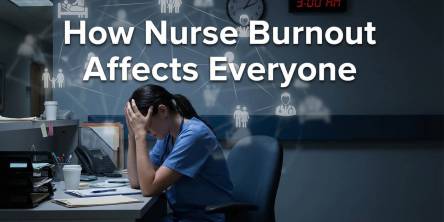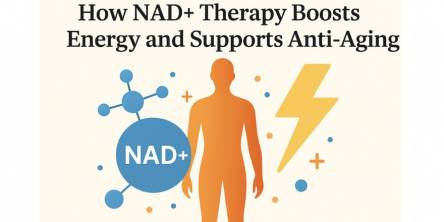What Exactly Is Lifestyle Medicine, and Why Is It So Significant?

Lifestyle medicine is a type of medicine that emphasizes the importance of changing one's lifestyle as a key means of preventing, treating, and reversing many chronic medical problems and some autoimmune disorders. For promoting health and treating and reverse disease, lifestyle medicine focuses on a whole-food, plant-based diet, physical activity, proper rest and recovery, stress management, and social interaction. Nutrition, movement, emotional stress, sleep, substance-free living, water, and being outside are commonly split down into pillars of a healthy lifestyle in lifestyle medicine. Within the essential reforms in present healthcare systems and public health policies, the effective implementation of prescription lifestyle medicine should be a top priority. Continue reading to see how lifestyle medicine can help you live a healthier and more fulfilling life.
Emotional wellbeing and stress:
Everyone is affected by stress differently, and lifestyle medicine teaches people how to focus on happiness, positivity, and meaningful relationships. When you are anxious, your bodies respond in one of two ways, sympathetic or parasympathetic. Your heart rate and anxiety rise while you are under sympathetic stress. Under parasympathetic stress, your heart rate drops, and your body focuses on energy storage. Stress is more frequent than you might believe, with stress and lifestyle decisions accounting for 70% of primary care visits. Stress can lead to melancholy, anxiety, and even chronic disease if it is not controlled properly.
Hydration:
For avoiding dehydration, lifestyle medicine guidelines advocate making water your preferred beverage. Dry mouth, weariness, headaches, dizziness, or noticing your urine is darker than usual are all signs of dehydration. Although your age and activity level can impact those guidelines, males should drink around 15 cups of water daily, and women need to drink about 11 cups per day. Keeping water with you throughout the day is the simplest answer, whether you are running errands or sitting at your computer. If you do not prefer the flavour of plain water, try adding a squeeze of lemon or lime.
Regular exercise and movement:
The importance of movement in lifestyle medicine cannot be overstated. The significance of getting and keeping active through sitting less and moving more is the focus of this pillar. Physical activity has numerous benefits, including weight control, bone and muscle strengthening, and improved mental health. Cardiovascular disease and type 2 diabetes can both be reduced with regular exercise. Adults should get at least 150 minutes of moderate exercise per week, as well as two or more sessions of muscle-strengthening exercises each week.
Eating Habits:
More than two-thirds of individuals are overweight or obese, while only one-third of the population consumes enough fruits and vegetables. The nutrition of lifestyle medicine emphasizes the importance of including more complete foods into daily meals, such as vegetables, fruits, legumes, and whole grains. Processed foods and added sugar can be reduced by eating out fewer than twice a week and substituting water for soda. Have slowly remain hydrated, and eat a healthy breakfast every morning to optimize your nutrition. Proper eating can help you avoid health problems, including high cholesterol, high blood pressure, and obesity.
Good sleep:
The necessity of receiving 7-8 hours of undisturbed sleep per day is emphasized by sleep. Many things, including stress, environmental changes, medications, and food, can impact sleep quality. If you have trouble sleeping, keep a ten-day sleep journal and discuss it with your healthcare professional. Keep track of when you go to bed, when you wake up, when you get out of bed, when you nap, and when you exercise. You can work together to discover the best solution by sharing this information with your healthcare practitioner.
Going outside:
A lifestyle medicine prescription encourages people to spend at least 120 minutes each week outside in the sun and fresh air. According to studies, spending only 30 to 40 minutes outside increased the well-being of 60% to 70% of adults. Increased enjoyment, stress reduction, better sleep, and lower inflammation are advantages of spending time outside.
Bottom line:
Finally, Lifestyle medicine can significantly improve physical and mental health indices and the population's quality of life. So these are the above-explained details about what is exactly lifestyle medicine and its importance.
Similar Articles
Explore the biggest health trends that shaped 2025, from personalized nutrition to matcha and recovery—plus what wellness trends are coming in 2026.
Winter is a season when the body needs extra nourishment, warmth, and immunity support. According to Ayurveda and modern nutrition science, dry fruits play a vital role in maintaining health during cold weather.
Most people think health problems start suddenly. One day you feel fine, the next day something is wrong. In reality, most health issues develop slowly .They grow quietly in the background while life keeps moving.
The start of a new year is a natural time to pause, reflect, and think about how you want to feel in the months ahead. For those over 60, a fresh start does not mean setting unrealistic resolutions or making drastic changes.
Picture this: You're parked at your workspace, battling to focus on what should be a straightforward five-minute task. That afternoon slump? It's demolishing you today.
Joint pain and arthritis are common health issues that tend to become more intense during the winter season
Discover the benefits, challenges, and future of locum medical jobs. Learn how locum recruitment agencies support flexible, diverse career opportunities for healthcare professionals seeking dynamic work environments.
Burnout in the healthcare environment is a significant and growing crisis.
NAD+ therapy restores cellular energy, enhances metabolism, and promotes anti-aging by supporting DNA repair and improved overall vitality.









